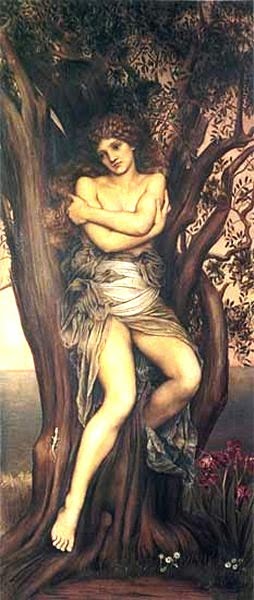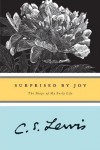Ode to a Nightingale by John Keats
If my memory serves me well, I believe this poem is a favourite of Jason at Literature Frenzy and it was his love of it that inspired me to include it in my Deal Me In Challenge. Without this inspiration, it would probably still be unread, as Keats, for some reason, intimidates my uneducated poetic sensibilities.
-2.jpg) |
| Common Nightingale Source Wikipedia |
 |
| The Dryad (1884-85) Evelyn De Morgan Wikimedia Commons |
Fled is that music:—Do I wake or sleep?
 |
| Illustration of Poem W.J. Neatby source Wikipedia |
Keats initially uses extreme contrasts of his dulled, poisoned senses to the happy nightingale, its song urging him out of his despair; one wonders if it will completely succeed. In the second stanza the poet relates his desire for wine. Why? Because wine is made from grapes, will it allow him to meld more with nature, or does he simply want to get intoxicated to forget his troubles? He admits then that he wishes to escape the suffering of life and expresses regret at the transience of youth and life. Ah, now he claims that he won't reach the nightingale through wine but poetry, and expresses almost a dualism in that his brain is dull perhaps still with care, yet he is already with the joyous nightingale. The fifth stanza is even more curious. Though he is in the forest with the nightingale, he cannot see the beauty there, as if he can only get glimpes as he is unable to liberate himself from life's hardship. The poet admits to being "half in love with .... Death," ---- I had thought the poet was equating the nightingale's song with joy, but now he appears to be marrying it with death. Is this part of his confusion or something deeper that I'm missing? Yet if he dies, he will cease to hear the song, so perhaps he realizes the dilemma. The poet then equates the nightingale with immortality and, as we've read, the bird almost transcends earthly constraints; its song has been a continuous joy in a temporal world. But alas, the poet is recalled to his sad state, the nightingale's song abandons him and he is left to wonder if his whole experience was real or a dream.
 |
| Portrait of Keats listening to a nightingale (1845) Joseph Severn source Wikipedia |
This was certainly a difficult poem for a rank amateur. The themes I could pick up were isolation, death, a transcendent joy that perhaps may be unreachable at least for the poet, abandonment, disconnection, transience of life, and a longing for something beyond this life.
As I was reading, I wondered if the poet was trying to match his creative expression with the nightingale's song. It would seem impossible to create at the level of God, but I felt such inspiration in the poem, almost as if Keats was trying to create the poem as intensely as the poet of the poem was wishing to escape earthly adversity.
I'm no expert, but this poem seems to pair well with Percy Bysshe Shelley's To A Skylark, which O reviewed recently on her blog Behold the Stars. Both poets put nature front and centre, but Shelley has a much more positive outlook, while Keats' poem is filled with more nuanced emotions and contradictions. The similarities and contrasts between the two are intriguing.
Deal Me In Challenge #9 - Ace of Diamonds
© Cleo and Classical Carousel, Years 2014 - 2016. Unauthorized use and/or duplication of this written material without express and written permission from this blog’s author and/or owner is strictly prohibited. Excerpts and links may be used, provided that full and clear credit is given to Cleo and Classical Carousel with appropriate and specific direction to the original content

 2
2









